This year, eight SIT Study Abroad alumni are among twenty students selected to present their research at the prestigious Human Development Conference, which will be held online February 26-27. The annual student-led conference is sponsored by the University of Notre Dame’s Kellogg Institute for International Studies. This year’s theme is “The Future is Now: Innovative Responses to Global Adversity.” Because of the COVID-19 pandemic, all students will be presenting virtually.
“On behalf of everyone at the School for International Training (SIT), I would like to extend a heartfelt congratulations to the alumni of our programs who will participate in the prestigious 13th annual Human Development Conference at University of Notre Dame, as well as all the students from across the country, and the academic spectrum, who will have the opportunity to share their development-focused research,” said SIT President Dr. Sophia Howlett.
SIT has been a sponsor of the conference since the inaugural 2008 event. Independent research is a critical component of SIT Study Abroad’s immersive, semester-long programs, which require students to complete original fieldwork, a final presentation, and a formal research paper.
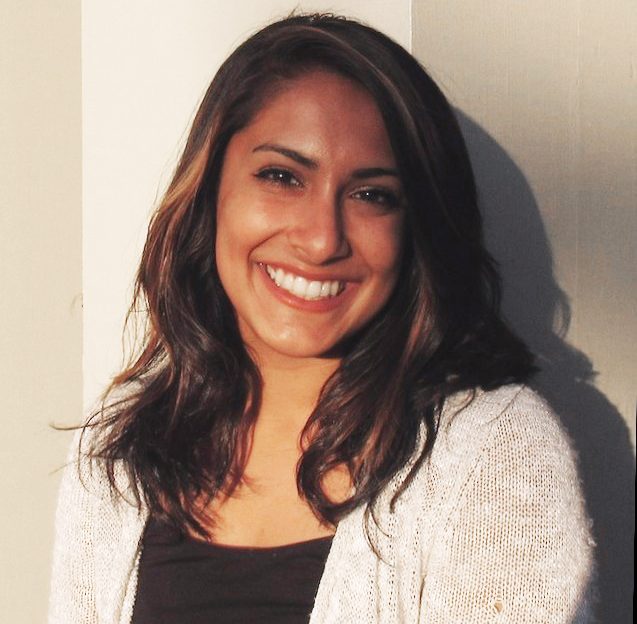
Sarah Ahmed
Psychology and Counseling
Wake Forest University
SIT India: Sustainable Development and Social Change
Research: “Breaking the Silence: Examining Mental Health Stigma, Literacy, and Access in Urban India”
My study abroad experience completely changed my academic goals! It inspired me to work in the mental health field, and starting this fall I will be starting a master’s program in Clinical Mental Health Counseling. I’m grateful for SIT for giving me the opportunity to know myself better, and in turn, know how to best serve those around me in purposeful and meaningful ways.
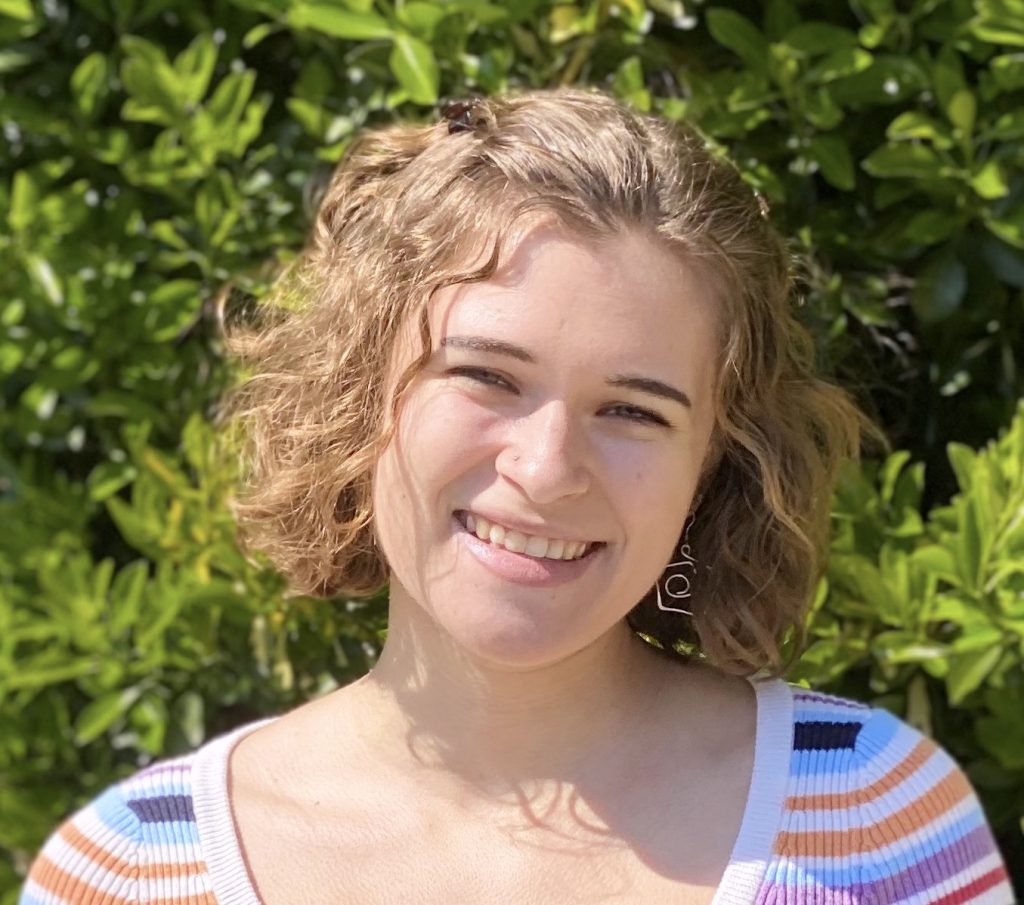
Alison Cummins
Sociology, minors in English and Creative Writing
Muhlenberg College
SIT Nepal: Development, Gender, and Social Change in the Himalaya
Research: Creating Writing During the COVID-19 Pandemic: Nepal and United States Perspectives
I settled on my research topic after being sent home from abroad because of the pandemic. I felt very dejected in my own creative writing at the time and was wondering if other writers were feeling the same. Choosing to find out through sociological research, I began to craft a research project that would help me to understand how writers were dealing with the pandemic. I reached out to Nepali and American writers and was soon on the path to understanding the cultural impacts of the pandemic on creative writers in these two countries.

Katherine Fulcher
Political Science and Hispanic Studies
University of Tennessee, Knoxville
SIT Mexico: Migration, Borders, and Transnational Communities
Research: “‘A Tale of Twinned Cities’: A Comparative Analysis to Predict Potential Twinning on the US-Mexico Border”
My research looks specifically at the state of border twinning across Europe, but the implications of this research could help policymakers understand the potential for a similar process in other regions of the world, like the US-Mexico border. Following graduation, I plan to work for a year before applying for a graduate program in international relations or public policy.
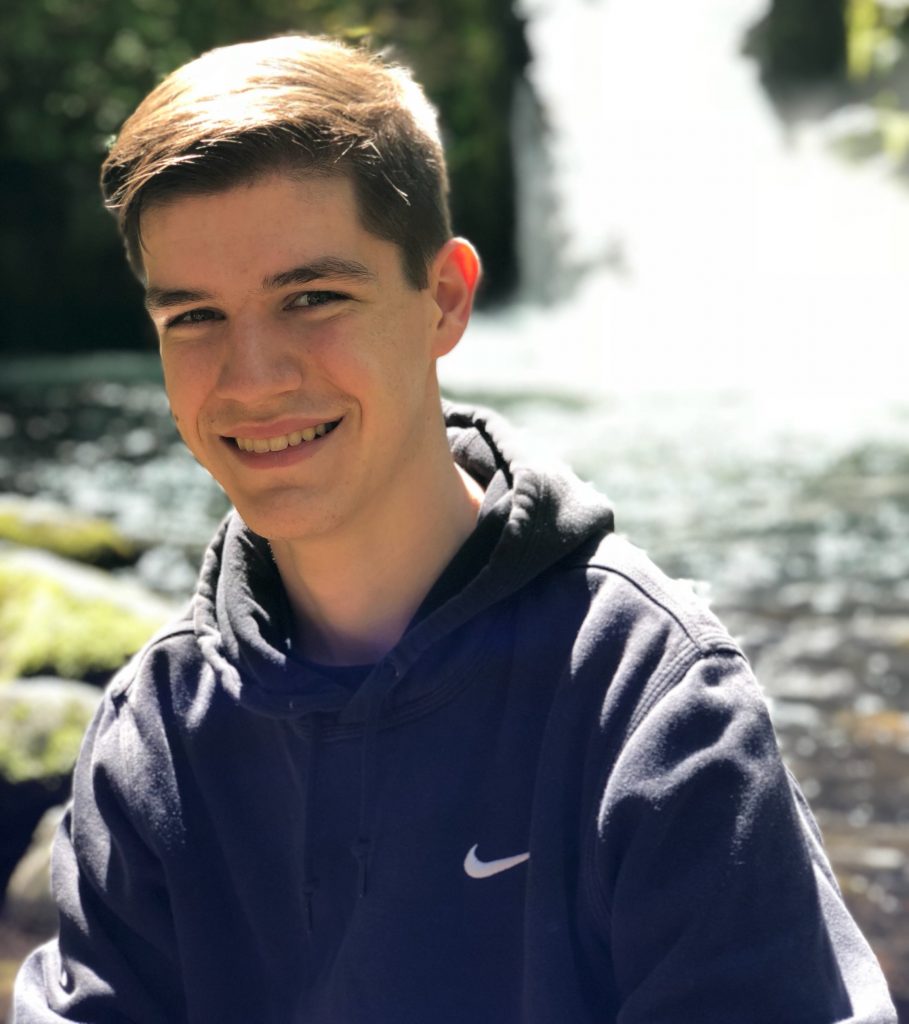
Samuel Johnston
Economics and Mathematics
Willamette University
SIT Uganda: Global Development Studies
Research: “Coordination or Clustering: Logistic Estimation of Aid Fragmentation in Uganda”
I first settled on the topic during our Contemporary Global Development seminar course, where multiple guest lecturers discussed the frustrating lack of cooperation by international donors in Uganda and many other countries….After completing a primarily qualitative and literature-focused study for my SIT Independent Study Project, I decided to continue my research in a more quantitative sense for my senior thesis in economics at Willamette…In the future, I’m interested in pursuing graduate study in economics with a specific focus in development and international cooperation.
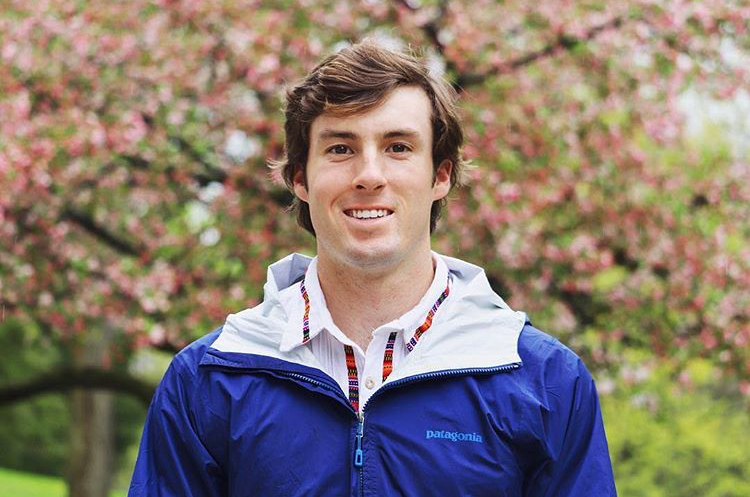
Daniel Krugman
Anthropology, minor in African Studies
Middlebury College
SIT Uganda: Global Development Studies
Research: “Survival as Solidarity: Refugee Exchange, Humanitarian Violence, and Social Cohesion in Mirieyi Settlement, Northern Uganda”
After graduation, I hope to continue to understand the dynamics of global forced migration and work towards the abolition of refuge in graduate school.
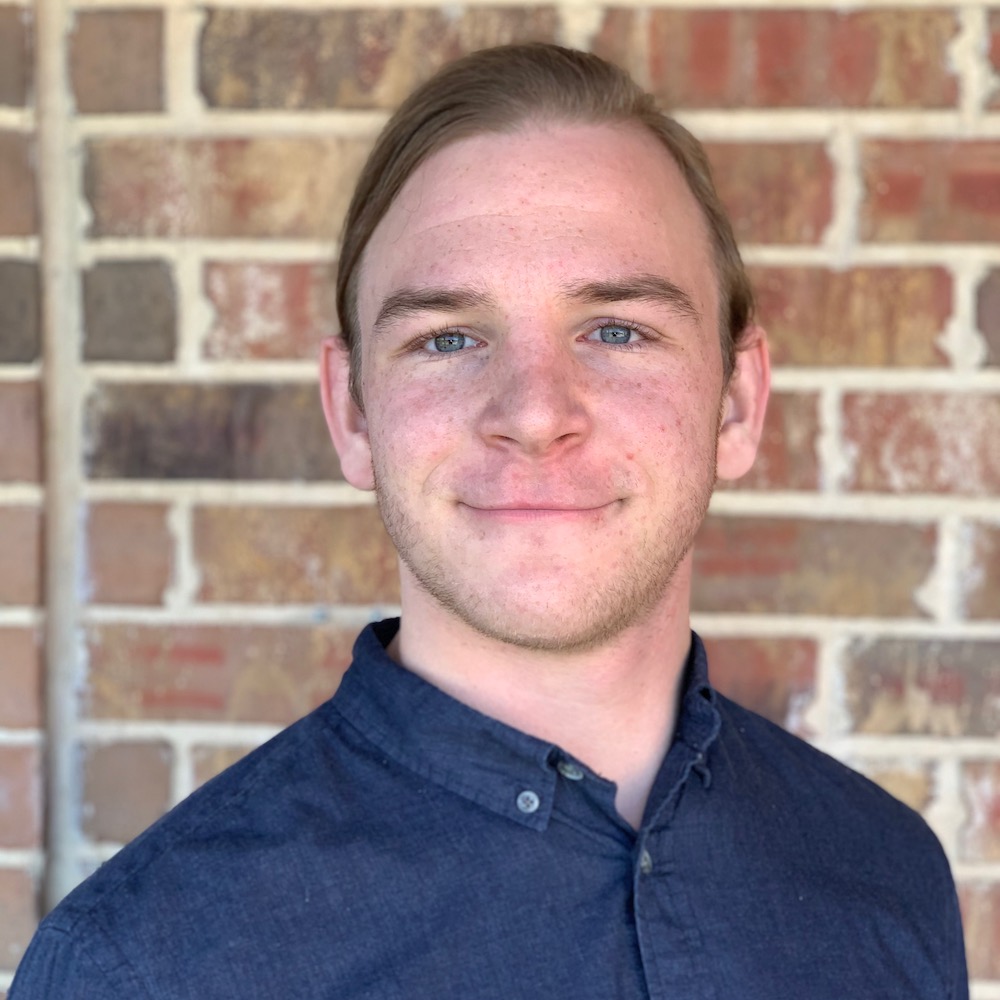
Jaran Rudd
Anthropology and Spanish
Austin College
SIT Ecuador: Development, Politics, and Languages
Research: “How Covid-19 has Deepened the Environmental Crisis Among the Kichwa: A Discourse Analysis”
I settled on this research topic after Covid-19 disrupted our study abroad experience and I began to wonder how the Kichwa community that our group visited was reacting to this pandemic. When I learned that floods and oil spills were also causing troubles for their community, I knew that I needed to look at the question of development to make sense of this unique situation…I hope to pursue a PhD in anthropology and continue investigating the role of international financial institutions, NGOs, and the political-economic power of language across multiple cultural contexts.
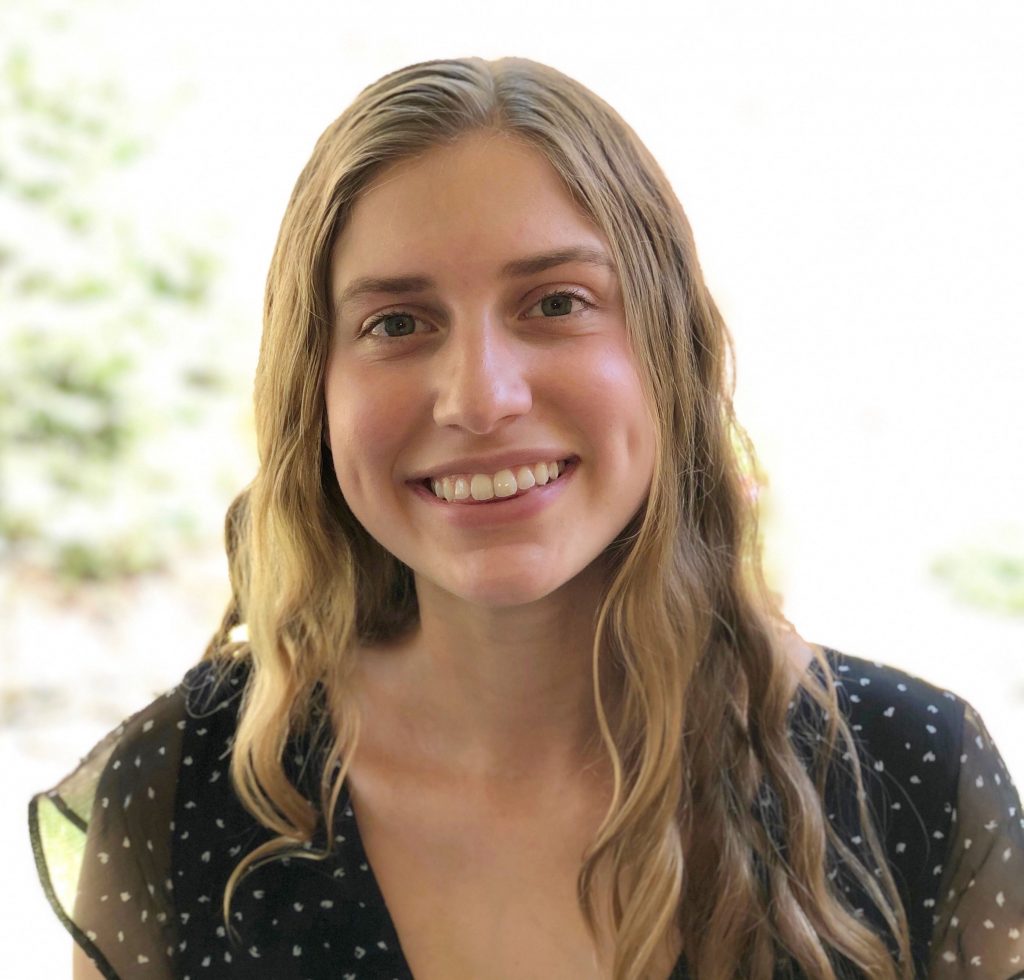
Noah Stanton
Public Health and History, minors in Anthropology and Chinese
Vanderbilt University
SIT India: Public Health, Gender, and Community Action
Research: Mother Nature Meets Modern Woman: An Exploration of Environment, Gender, and Urbanism Amongst Delhi’s Middle Class
I decided on my research topic after reading a book called “Ecofeminism” by Vandana Shiva, a renowned Indian activist….India’s fascinating history of rapid development and urbanization, coupled with its unique cultural ties to nature, inspired me to explore the Ecofeminism framework in the context of women in Delhi. Since departing from India, I have become much more focused on issues of women’s health, international development, and environmental justice; this shift has informed my job search as I look to work with a global health NGO after I graduate this May.
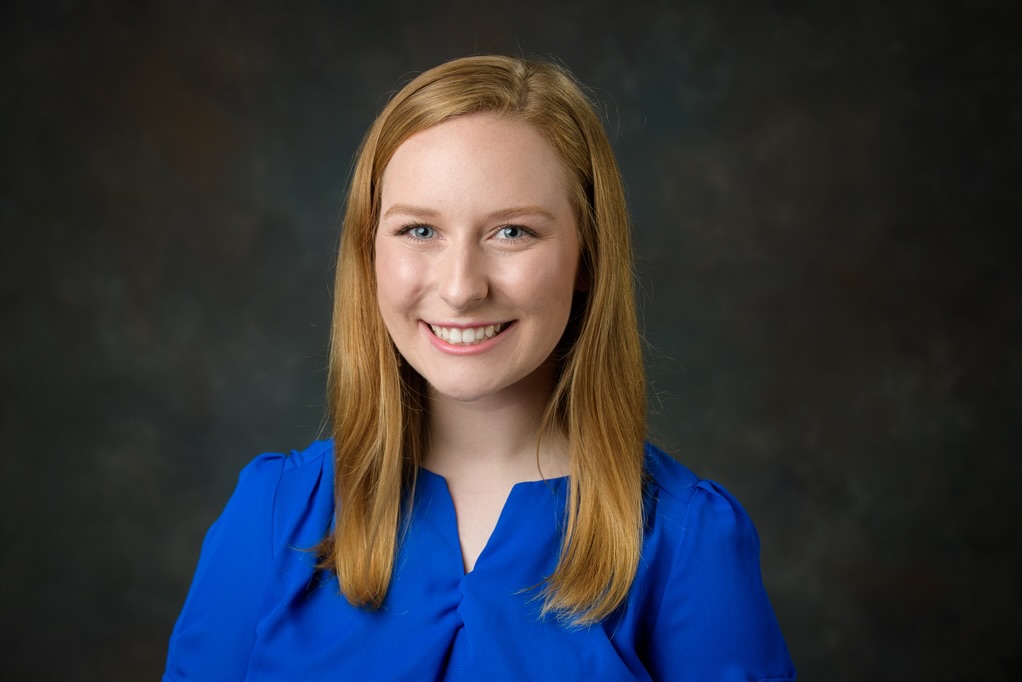
Liz Williams
Political Science and Sociology
University of Tulsa
SIT Senegal: Global Security and Religious Pluralism
Research: Thiéboudienne: A Look into the Intersection of Cuisine and Community in Senegal
The emphasis placed on decolonial thinking [during my SIT program] by both students and faculty alike has forever changed my perception of academia. The lessons I learned in Senegal and throughout my research process impact the interactions I have with systems and institutions daily. I am now better equipped to understand my positionality as a student and researcher and how my disciplines operate within the Western gaze. I intend to take this knowledge with me to law school and continue to challenge colonial ways of thinking and operating.
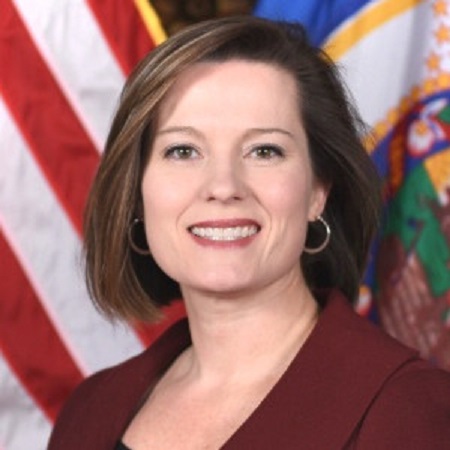
I needed to leave the U.S. to understand our country more realistically and assess our actions as a global power from a completely different perspective.
Can an SIT Study Abroad program influence the day-to-day functioning of state and city government in the United States? Jaime Tincher, deputy mayor of the City of Saint Paul, Minnesota, says yes.
Tincher, whose SIT experience took her to Mexico in 1997 followed by graduate coursework in conflict resolution, makes it very clear that SIT helped shape her career, starting with her early work in political advocacy and electoral campaigns in the South. Her work eventually brought her to Minnesota, where she immersed herself in party politics at the highest levels.
Originally from West Virginia and now the mother of two children, Tincher graduated from Denison University with a degree in communications and dreamed of being an international journalist in the mold of CNN’s Christiane Amanpour. From her junior year experience in Mexico, however, she developed a fascination with politics and power dynamics, with a rare view of class disparities and the scourge of racism.
“I needed to leave the U.S. to understand our country more realistically and assess our actions as a global power from a completely different perspective,” she says. “I began to pay close attention to who gets to sit at the policymaking table. I saw more clearly the barriers that prevented people from participating in the system, and I wanted to help create opportunities for those who were historically left out. I asked myself, is it a true democracy if you’re not knocking down those barriers?”
On a personal level, she says, “being able to travel and make my way in a different culture gave me confidence at a relatively young age. I became much more comfortable taking career risks and trying new things.”
I began to pay close attention to who gets to sit at the policymaking table. I saw more clearly the barriers that prevented people from participating in the system, and I wanted to help create opportunities for those who were historically left out
Confidence and risk-taking helped when she arrived in Minnesota in 2006. There, Tincher began working in voter outreach and mobilization and later as a campaign manager for a gubernatorial candidate who lost in a primary bid. After the election, she was asked to shift from politics to policy as the chief of staff for the newly elected governor, Mark Dayton, and Lieutenant Governor Tina Smith. When the governor’s term ended, she was tapped to become Saint Paul’s deputy mayor.
“A key benefit of my SIT experience,” she says, “was developing insights into the challenges of a multicultural society in the public sphere, which helped me in my work and worldview, especially when hiring staff,” as compared to those colleagues who came into politics and government with only academic or law school experiences. And she was able to draw on her education in conflict resolution in every job she’s had.
In fact, as deputy mayor, Tincher manages the daily operations of Saint Paul’s government, including its 14 departments and more than 3,000 employees. Managing statewide teams and multimillion-dollar budgets, she implements Mayor Melvin Carter’s vision of a city that works for all of Saint Paul’s 304,000 residents, applying the values of equity, innovation, and resilience by focusing on the administration’s three strategic pillars – lifelong learning, economic justice, and community-first public safety.
A key benefit of my SIT experience was developing insights into the challenges of a multicultural society in the public sphere …
When she was chief of staff in the governor’s office, Tincher managed the daily operations of the state government and its 34,000 employees, serving as a key advisor and leading the administration’s efforts on such high-profile issues as budget negotiations, transportation, education, hiring, and emergency and crisis management.
With a much broader perspective from her SIT experience, Tincher said she always strives to structure more open processes in which policy decisions are made with greater participation from the larger community.
“Politics and government are not just about votes and hearings,” she says. “Understanding the diverse needs of people and connecting with those people who have traditionally been left out of the political system are incredibly valuable,” Tincher says. “I credit SIT for this, and it’s helped me achieve success by drawing on a global perspective that I value.”
Mari is an ecological designer, educator, and urban homesteader living in Asheville, North Carolina. She holds a doctorate from Harvard University and has taught Asian religions and environmental ethics at Reed College and the University of South Carolina. Alongside her academic work, she also trained as a permaculture designer and teacher, and in 2016 she transitioned to doing ecological landscape design and education full time. Mari is the founder of Project Grounded, which seeks to engage urban and suburban people in the regenerative farming movement through their daily choices. Her interdisciplinary background informs all of her work and allows her to connect the dots between ecological and social solutions to climate change, landscapes and landscapes of the mind, and grounded people and grounded carbon.
Dr. Robinson is a senior program manager with more than 20 years’ experience working with organizations in numerous countries. She has lived, worked, and traveled in 70 countries to date and has been involved in a variety of issues, including human rights, environmental justice, racism, sustainable development, emergency management, and violence against women. The thread that ties this work together is that it was all conducted from a social justice perspective and focused on issues of inclusion and marginalization.
She has over 10 years’ experience developing and delivering training courses and teaching. Most recently, she was director of the Emergency Readiness and Response Management degree program at the National Labor College and had a particular interest in climate change and disaster risk reduction. Prior to that, she was executive director of the National Legal Preparedness Training Program at the University of the District of Columbia. In that capacity, she was responsible for the development of the course Legal Issues and Disasters: Things You Should Know and its delivery across the 50 states and six US territories. She has also taught at Howard University and the University of Michigan.
She was the founder and executive director of International Possibilities Unlimited (IPU). For seven years in that capacity, she focused her attention on developing the capacity of domestic organizations to participate more effectively in international forums such as the United Nations. This process included helping domestic organizations develop a more global perspective, linking them with organizations in other countries involved in similar work, training delegations on United Nations (UN) processes, and participating in policy formation. IPU facilitated the participation of people from 34 countries in consultations, workshops, and delegations; worked with organizations to introduce new issues onto the UN agenda; disseminated regular informational email updates that reached thousands of people; and mentored a cadre of young adults, providing them with experiential learning opportunities.
Robinson received her BA in psychology from Williams College, her MBA with a specialization in international organizations from the University of Geneva in Switzerland, and her PhD in social psychology from the University of Michigan.
Venkatesh (Venky) Raghavendra is a social entrepreneur with nearly three decades of philanthropy and development experience. He has successfully built global partnerships and mobilized significant resources for a number of international and national organizations.
Venky is a consultant in the areas of philanthropy, fundraising, and social entrepreneurship. Some of his recent and current clients include the UK-based Common Purpose, New York–based American India Foundation, and Washington, DC–based Ashoka: Innovators for the Public.
Formerly chief philanthropy officer at the American India Foundation (AIF), Venky strengthened the US-India philanthropic and ideas exchange by promoting major giving and investments from corporations, high net-worth individuals, diaspora communities, and others. Prior to joining AIF, Venky was managing director of global partnerships at Ashoka: Innovators for the Public, in Washington, DC. At Ashoka, Venky promoted social entrepreneurship around the world by collaborating with business entrepreneurs and foundations. He was also involved in supporting social entrepreneurs in achieving scale and in the creation of communities of social entrepreneurs.
Venky’s career as a social entrepreneur began in his late teens, when he co-founded The Adventurers — an organization that creates livelihood opportunities for indigenous communities in the rainforests of South India through eco- and adventure-tourism.
Venky is a trustee of Ashoka India and is on the board of several not-for-profits and is an advisor to several others. He writes frequently on social issues for a variety of media, including the Wharton Journal, Khaleej Times, Times of India, Indian Express, and The Hindu, among others. He speaks regularly at a number of universities around the world on the topics of social entrepreneurship and innovation, cross-sectoral partnerships for community change, and philanthropy. He has taught social entrepreneurship to graduate-level students in the United States and in India.
Kū Kahakalau is a native Hawaiian educator, researcher, cultural practitioner, grassroots activist, songwriter, and expert in Hawaiian language, history, and culture. A resident of Hawaiʻi Island, Dr. Kahakalau is the first person in the world to earn a PhD in indigenous education. Dr. Kahakalau’s research has resulted in an indigenous research methodology called Māʻawe Pono as well as a highly successful pedagogy of aloha (love/compassion), which promotes the revitalization of Hawaiian language and culture, hands-on learning in the environment, community sustainability, food sovereignty, and Hawaiian self-determination in education and beyond. Over the past 25 years, Dr. Kahakalau has founded and administered multiple, innovative Hawaiian-focused programs, including a series of Hawaiian summer immersion programs, a Hawaiian academy, Hawaiʻi’s first culturally driven PK–12 charter school, an Indigenous teacher licensing program, and a successful social enterprise. Her latest efforts center on developing EA Ecoversity, a Hawaiian-focused postsecondary program that transitions Hawaiian youth to culturally grounded, happy, successful, thriving adults and responsible global citizens able to walk comfortably in multiple worlds. EA, which stands for Education with Aloha, also means sovereignty in Hawaiian, since EA Ecoversity is envisioned to become the first component of an independent Hawaiian system of education.
Manish is deeply committed to regenerating our diverse local knowledge systems and cultural imaginations and is one of the strong planetary voices for de-schooling our lives. He has served for the past 20 years as coordinator and co-founder of Shikshantar: The Peoples’ Institute for Rethinking Education and Development based in Udaipur, India, and is co-founder of the Swaraj University, Creativity Adda, Learning Societies Unconference, Walkouts-Walkon network, Udaipur as a Learning City, and Families Learning Together network in India. He recently helped launch the global Ecoversities Network and the global Giftival Network. He is a featured speaker / advisory member of the Economics of Happiness network for localization. He has edited several books on vimukt shiksha (liberating learning) on themes such as learning societies, unlearning, gift culture, community media, and tools for deep dialogue. Prior to this, Manish worked as one of the principal team members of the UNESCO Learning Without Frontiers global initiative. He has also been a consultant to UNICEF, World Bank, and USAID in Africa, South Asia, and the former Soviet Union. Manish also worked as an investment banker with Morgan Stanley. He has been trying to unlearn his master’s degree in education from Harvard University and his BA in economics, international development, and political philosophy from Brown University. He and his wife Vidhi have been unschooling themselves with their 15-year-old daughter, Kanku, in Udaipur, Rajasthan. Manish is passionate about urban organic farming, filmmaking, simulation gaming, bicycling, group facilitation, clowning, intercultural dialogue, and slow food cooking.
John is a senior instructor in the Department of Educational Leadership at Florida Atlantic University, where he teaches master’s- and doctoral-level courses in the school leadership and adult and community education programs. He chairs the College of Education Diversity Committee and serves on the University’s Diversity Platform Council. He is currently one of four project coordinators of a Wallace Foundation $5.8 million grant designed to develop a fully revised master’s degree in educational leadership in partnership with the Florida Department of Education and the public school districts of Broward, Palm Beach, St. Lucie, and Martin counties in Southeast Florida. At the heart of the new program is the preparation of school leaders as reflective, critical systems thinkers who are committed to the ideals of diversity, inclusion, equity, and social justice in the service of their schools and communities.
John is the founder of Regenerative Organizations, a process consulting firm that specializes in regenerative leadership coaching and training and facilitating the shift of organizations toward sustainability and regenerative practice in business, community, and education. This work is based on original research conducted with highly effective leaders in organizations that are creating new organizational paradigms in entrepreneurship, social entrepreneurship, government, industry, and education.
Chris has worked for the National Democratic Institute (NDI)’s Middle East and North Africa (MENA) team as the deputy regional director since 2004 and has managed field operations and program implementation throughout the region. He has developed expertise in local governance and administrative processes as well as election-day related policies and processes. Mr. Foley represents NDI’s MENA interests at a variety of venues and to a wide range of audiences and meets with senior level government officials in the US and around the MENA region. He is also responsible for the overall recruitment strategy for the MENA team in DC and its many field offices.
Prior to NDI, Mr. Foley was a senior analyst for Los Angeles County, California (1997 to 2003) and provided policy advice and support to the chief administrative officer and board of supervisors on matters relating to the decennial census and redistricting process, redevelopment and community development initiatives, and the provision of county services to citizens in unincorporated areas. Mr. Foley also held the position of governance and housing advisor to the USAID mission in Moscow, Russia from 1994 to 1996 and managed a multi-year, multi-million dollar contract providing support and financial management expertise to local governments throughout Russia.
Mr. Foley earned a master’s degree in public administration from the California State University, Fullerton in 2000 and a BA in American history from St. Michael’s College in Colchester, Vermont in 1985.
Davina is an assistant professor at SIT Graduate Institute in Washington, D.C. where she served as the faculty lead for the Inclusive Security Certificate Program. She was named the 2016 Statistical Advocate of the Year by the American Statistical Association and as a Forbes Top 30 Under 30 in Science for 2017 for her work on statistical modeling, human security theory, and modern slavery. She focuses on applying analytical models to understanding vulnerability, risk, and prevalence on the issue of human trafficking domestically and internationally. She is a report author and statistician on the Global Slavery Index of the Walk Free Foundation. Her current work focuses on constructing modern slavery models and profiling vulnerability to this crime in the United States and around the world.
In June 2013, Davina was selected as a Google Fellow for Technology and Social Change for her work in Human Trafficking and Technology. She was also awarded with the 2013 Trafficking in America Task Force Award for Service for her contributions to the Anti-Trafficking Field in the United States, and in 2015 she received the University Award for Outstanding Scholarship at the Graduate Level from American University, where she received her PhD in International Relations with Distinction. She received her masters degrees in Paris while studying human trafficking at the Sorbonne and the American University of Paris, and her bachelor’s degree at George Washington University’s Elliott School of International Affairs.
Gerardo is currently walking passionately the path of autonomous education with the task of imagining spaces of encounter for thinking-feeling together about ways to strengthen the defense of life, memory and territory. He sees this as part of a planetary struggle for cognitive and ontological justice. He is purposefully becoming entangled in a great “we” of people enacting the pluriverse, that “world where many worlds fit.” He has a profound interest in intercultural translation as a political practice with the horizon of weaving together an anti-imperial, decolonizing, joyful South that can resist the current capitalist storm and create stories, practices, and ideas that nurture life and dignity. He’s a pilgrim of viable spaces informed by politics of love and consciousness regarding the healing of land and territory, love and intimacy, and labor and livelihood. These topics constitute his field of inquiry for his doctoral dissertation research.
Nancy is an expert in human rights, migration, transnational migration, and the search for missing migrants in Mexico and the U.S. She is recognized by the people and government of Oaxaca as one of the most dedicated and effective migrant human rights defenders. Nancy is co-founder of MANOS: Migrantes Apoyados, No Olvidados, a nonprofit organization in Oaxaca providing free legal services to refugees, migrants, and those who have been separated from their families due to unjust and inhumane U.S. immigration laws and policies. MANOS also implements educational projects that help civil society understand the migration phenomenon from an informed and humanistic perspective. Before co-founding MANOS, she was founder and director of Caminos A.C., a nonprofit organization dedicated to the search, guidance, and support of Oaxacan migrants and their families. She was also director of COMI, the only shelter in Oaxaca for Central Americans, and she worked for nine years giving guidance and information to refugees about the asylum process in Mexico.
She is co-author of the book “Herramientas para la Bùsqueda de Migrantes.” For three years, she was part of the Argentinian forensic team that specializes in the search for missing migrants through DNA testing. Nancy is member of the Justice in Motion network and the Activist and Defender network in Oaxaca. In 2018, she completed her BA in economic, social, and cultural human rights at the ProDESC School of Transnational Justice in Mexico City.
he/him/his
Born in Oaxaca, Mexico, Dr. Núñez Méndez received a BA in Teaching English as a Foreign Language from Oaxaca State University and an MA in applied linguistics through a Fulbright Scholarship at the University of Illinois at Urbana-Champaign. He earned his PhD in the Languages, Cultures, and Literacies program at Simon Fraser University in Vancouver, Canada. In 2007, he founded Ollin Tlahtoalli: Centro de Lenguas y Cultura Mexicana, a language and culture organization based in Oaxaca. At this organization, he has planned and implemented international education programs on indigenous histories, globalization, U.S.-Mexico relationships, migration, and more with universities in the United States and Canada. He has developed and implemented arts-based education programs for children and youth in Indigenous communities in Oaxaca aimed at contributing to the recognition and validation of Indigenous ways of knowing and being. He has done critical ethnographic research, collecting oral stories of elders in indigenous communities and of Mexican-American children and parents who are forced to return to Mexico after years of living in the U.S.
Dr. Núñez Méndez has taught at Oaxaca State University and provided intercultural awareness workshops for teachers in the U.S. and, most recently, to immigration attorneys providing legal assistance to undocumented women and children from Mexico and Central America. His research interests include transnational migration, identity theory, decolonizing methodologies, and critical literacies. In 2018 and 2019, he was the principal organizer of the International Assembly for Community Development Across Borders which brought together indigenous people, activists and local and international organizations to discuss social, political, and educational practices that have negatively affected marginalized communities and their environments.
Courses Taught
Political Economy of Migration
Research Methods and Ethics
Independent Study Project
Research Interests
Indigenous histories
Globalization
U.S.-Mexico relationships
Transnational migration
Identity theory
Decolonizing methodologies
Critical literacies
BRATTLEBORO, Vt. – A new SIT Study Abroad program will give undergraduate students a first-hand look at migration along both sides of U.S. and Mexican borders and its tremendous human, social, and political implications.
Enrollment opens Dec. 15 for Mexico: Migration, Borders, and Transnational Communities, an intensive, semester-long program based in the southern Mexican state of Oaxaca, where there is a long history of migration to the United States. The program launches in fall 2018.
“Migration and borders, especially with Mexico, are vital issues facing the United States today and this program provides a unique opportunity to gain knowledge about international migration and borders from the U.S. side and from the perspectives of migrant-sending communities,” said Aynn Setright, SIT academic dean for Latin America. “Students will achieve a deeper understanding of our southern neighbors and overall migration policy and its impacts.”
Students will start the semester in Tucson, Ariz., a major point of entry for undocumented migrants entering the United States. There, they will meet with grassroots leaders organizing immigrants’ rights groups and talk with undocumented migrants about their journey to the United States and what they face once they’re here.
In Oaxaca, they’ll learn how generations of cyclical migration to and from the United States has affected rural and urban communities, and how increased border enforcement has resulted in death, disappearance, and separation from family and friends.
Students will also travel to the Mexican state of Chiapas, to Mexico City, and to a border community in Guatemala to understand the very different experiences that Central Americans face in their attempts to cross into Mexico and to enter the United States.
SIT Study Abroad Director of Special Projects Riley Merline helped design the new SIT program. Merline spent about a decade working on the U.S. southern border starting in 2006 with the Tucson-based nonprofit BorderLinks and as director of Earlham College’s Border Studies Program. During that time, he saw dramatic changes along the border, including the militarization of U.S. enforcement that has constricted what was once a routine flow of migrants to and from the United States for work, shopping and education. This development has pushed migrants into the shadows, where they face violence and death, Merline pointed out.
“In a world of inequality, a world of climate change, where the U.S. and other powerful nations have a big responsibly in the global economy and carbon emissions, what does it mean to seal off the borders between well-to-do nations and those that aren’t doing so well?” Merline asks in an SIT podcast. “What does it mean from an ethical perspective to say ‘you don’t have access to this space’? Push ourselves down the road a few decades and imagine a world where there’s a Fortress America and a Fortress Europe barricaded off from the rest of the world. Is that a world we want to live in? In some ways, imagining borders in that context can help us think more concretely and have more motivation to make sure that economic gains and wealth distribution and climate change are addressed in ways that help us not come to that reality.”
- Click here to listen to On Site: Immigration and the Mexico-U.S. Border
SIT Study Abroad programs are characterized by hands-on, experiential learning and immersion into local cultures through meetings with local leaders and activists, intensive language instruction, and homestays with local families. Because this program is taught in Spanish, students must have at least three recent semesters of college-level Spanish or the equivalent, and the ability to follow coursework in Spanish. The 16-credit program includes a four-credit independent study project or a four-week internship with a community or research organization, business, or international NGO.
Click here to find out how to apply, or go to the SIT program page website to learn more about Mexico: Migration, Borders, and Transnational Communities.
SIT Study Abroad offers more than 80 semester and summer programs for undergraduate students in Asia and the Pacific, Africa, Europe, Latin America, and the Middle East, including comparative programs in multiple locations. Students step beyond the boundaries of a traditional classroom to analyze the critical issues shaping local communities around the globe.
